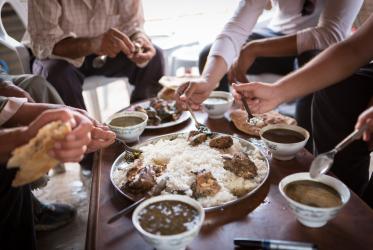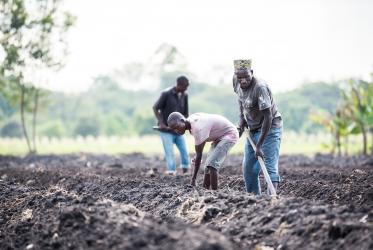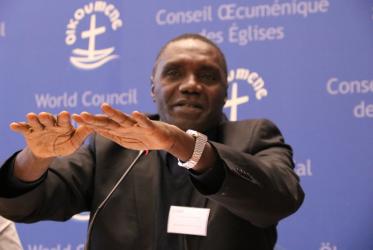Displaying 21 - 40 of 72
Martin Khor Kok Peng, “friend of the poor,” passes away
03 April 2020
Eco-School promotes blue communities, green churches
19 November 2019
WCC Eco-School begins in Thailand
07 November 2019
In Fiji, young people ‘walk the talk’ with advocacy
12 September 2019
WCC condemns massacre of farmers in Philippines
12 April 2019
Agreement works toward food security in South Sudan
23 February 2019
Pan African Women of Faith issue fervent Call to Action
20 November 2018
Worrying food shortages compel faith action
19 October 2018
WCC invites Churches’ Week of Action on Food 2018
11 October 2018
WCC promotes Global Day of Prayer to End Famine
06 June 2018
WCC calls for Global Day of Prayer to End Famine
31 May 2018













